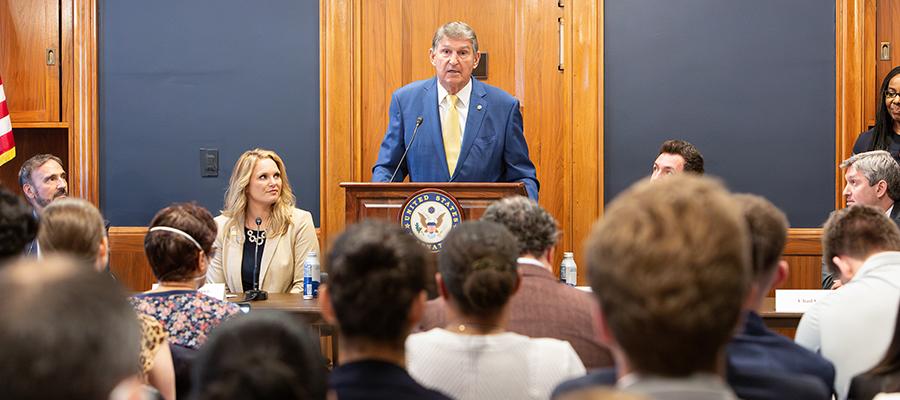

At a Capitol Hill briefing July 31, hospital and health care leaders shared strategies and stories highlighting the importance of passing the Safety from Violence for Healthcare Employees Act (H.R. 2584/S. 2768), bipartisan legislation that would provide federal protections against violence to hospital workers.
The panel featured: Mark Boucot, president and CEO of Potomac Valley Hospital in Keyser, W.Va., and Garrett Regional Medical Center in Oakland, Md.; Rachel Culpepper, DNP, RN, general medicine service line director at Indiana University Health West Hospital in Avon, Ind.; and James Phillips, M.D., an emergency room physician in Washington, D.C. and chair of disaster medicine at the American College of Emergency Physicians. Sen. Joe Manchin, I-W.Va., author of the Senate bill, also delivered remarks.
Sen. Manchin stressed how important it is for Congress to enact federal legislation this year to address workplace violence in hospitals. “Elections and politics should not affect this common-sense piece of legislation,” he said. “And we’re going to stay on it until we get it finished.”
Culpepper discussed how workplace violence is affecting an already-strained occupation. “We know that many nurses go into the profession to care for people, and when those people are physically or verbally abusive, [nurses] leave their shift feeling demoralized and burned out,” she said. “We already have a nursing shortage that isn’t related to workplace violence, but this is perpetuating the issue significantly.”
Phillips described being physically and verbally attacked numerous times while providing care in the emergency department, and he emphasized how violence in a health care setting affects patient care. “As physicians, our preeminent goal is to provide excellent medical care to our patients. If we can‘t feel safe in a room with a patient, that affects their medical care. It’s not always about us.”
Boucot described efforts in his two hospitals to prevent and respond to workplace violence. “We are working with our teams and creating workplace violence task forces throughout the organization to continue to educate people that [violence] shouldn’t be an acceptable part of the work that you do,” he said. “Sometimes it’s us standing up and saying ‘this isn’t OK’ that makes a change.”